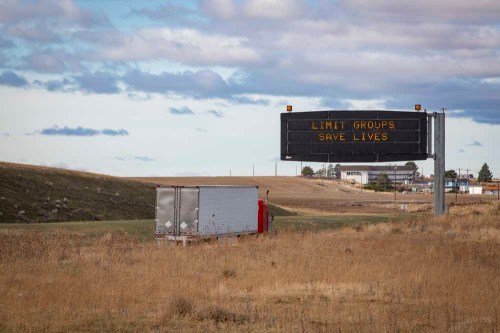Independence Day travel expected to be second busiest in history
Published 7:00 am Monday, June 28, 2021

- AAA says the easing of COVID-19 travel restrictions, increased vaccinations and lower unemployment are giving Americans increased confidence to travel for vacations and fireworks this year.
LA GRANDE — With 56% of all adult Americans now fully vaccinated, travelers are gearing up for Fourth of July weekend. According to the American Automobile Association, 597,000 Oregonians are expected to travel for the holiday, a 40% increase from 2020.
This will be the second highest number of travelers for Independence Day in Oregon, only slightly under the 2019 record of 609,000.
AAA says the easing of COVID-19 travel restrictions, increased vaccinations and lower unemployment are giving Americans increased confidence to travel for vacations and fireworks this year.
“People are eager to travel this summer after staying close to home for the last year-and-a-half, Doreen Loofburrow, senior vice president of travel at AAA Oregon/Idaho, said in a press release. “With pandemic restrictions easing and more people getting vaccinated, we saw a strong kick-off to the summer travel season over Memorial Day and that trend continues for Independence Day.”
Oregonians won’t be traveling alone: 48 million Americans are expected to travel between July 1 and July 5 — 14.4% of the total population, according to AAA.
The most popular destinations for Oregonians include Central Oregon, national parks of Utah, Yellowstone, Hawaii, Disneyland and Las Vegas, AAA reported. With record numbers of travelers hitting the road, traffic is expected to cause major delays on highways and in metropolitan areas.
“With travelers eager to hit the road this summer, we’re expecting nationwide traffic volumes to increase about 15% over normal this holiday weekend. Drivers around major metro areas must be prepared for more delay,” Bob Pishue, transportation analyst at INRIX, said in a press release. “Knowing when and where congestion will build can help drivers avoid the stress of sitting in traffic.”
To avoid major traffic delays, AAA recommends avoiding travel on the afternoons of July 1 and 2 and mid-day July 5.
More traffic likely will lead to more accidents and delays. AAA expects to rescue more than 468,000 motorists nationally and 8,000 in Oregon this Independence Day weekend, with the most common issues being dead batteries, lockouts and flat tires.
However, not all accidents are so minor.
According to the U.S. Department of Transportation, Fourth of July weekend usually sees an increase in impaired driving crashes. According to their website, from 2015-19, 1,339 drivers died in motor vehicle crashes during the holiday weekend — over a third of whom were drunk.
Nearly 3.5 million Americans are expected to use airline travel on the holiday weekend; 12% of Oregon travelers will be flying to their destinations, compared to the 86% of drivers who will pay for the highest gas prices on July 4 in seven years, according to AAA.
The holiday’s national gas price average of $3.07 will be the highest average since 2014, and the Oregon average of $3.49 is the fifth highest in the nation.
Nonetheless, these prices aren’t deterring travel plans, according to AAA.
“Expensive pump prices won’t keep people home,” Marie Dodds, public affairs director for AAA Oregon/Idaho, said. “Instead, travelers will find other ways to save money, such as staying closer to home, shortening the duration of a trip, limiting restaurant meals and/or eating at moderately priced restaurants, limiting shopping budgets, and looking for free or low-cost activities.”









